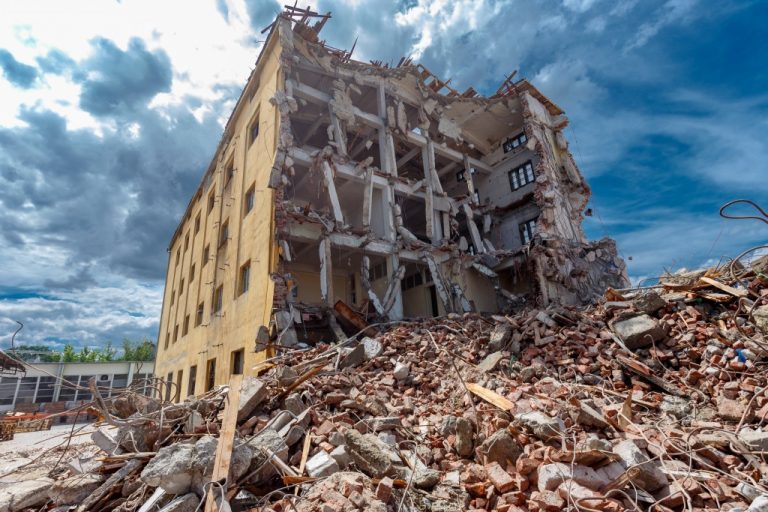• Earthquakes can cause significant structural damage, loss of critical data and equipment, disruption of communication networks, and lowered employee morale.
• Business owners should do everything they can to protect against earthquakes.
• Earthquakes cost the U.S. economy an estimated $4 billion annually.
• Preparing for earthquakes can help your business minimize the risks associated with these natural disasters and keep operations running smoothly.
Earthquakes are natural disasters that have the potential to wreak havoc in a matter of seconds. While we often think of earthquakes in terms of their impact on people’s homes, they can also be disastrous for offices and businesses. It’s estimated that earthquakes cost the U.S. economy about $4 billion annually. These costs can include damage to buildings, property losses, business interruption, and other related expenses.
Earthquakes and Your Business
As a business owner, it is crucial to be aware of the far-reaching implications of earthquakes on your operations and take steps to mitigate the risks. Here are reasons why earthquakes are a nightmare for your workspace and what you can do to prepare for such events.
Infrastructure Damage and Downtime
An earthquake’s most apparent and immediate impact on your office is the potential for significant structural damage. The shaking and vibrations accompanying an earthquake can cause walls to crack or collapse, windows shatter, and even entire buildings to crumble. Even if the damage is not severe, the time and cost involved in repairing the building can significantly disrupt your business operations.
Loss of Critical Data and Equipment
Many of an organization’s assets in a modern workplace are tied up in digital infrastructure and high-tech equipment. Earthquakes can destroy these valuable resources, leading to the loss of critical data, disruption of communication networks, and the need for costly repairs or replacements. Businesses that rely heavily on IT systems may be rendered inoperable without access to their data, potentially causing irreversible damage to the company’s prospects.

Employee Safety and Well-Being
As a business owner, your employees are your greatest asset. The physical and emotional toll of experiencing an earthquake can be considerable, and the aftermath often requires immediate attention to employee safety and well-being.
Aside from physical injuries sustained during the event, the uncertainty and stress that follow can contribute to lowered morale, decreased productivity, and increased risk of mental health issues among your workforce. By taking proactive steps to prepare for an earthquake, you can minimize the risk to your team and help them feel safer and more secure in the workplace.
Business Interruption and Loss of Clientele
During an earthquake, your business operations may be temporarily or permanently interrupted. This can lead to an inability to fulfill client obligations, deliver products, or provide services for an extended period. The resulting financial loss can be substantial and, in some cases, may even lead to the failure of the business. Furthermore, clients may lose faith in your ability to deliver or be forced to turn to alternative providers to keep their operations running.
Legal Liability and Insurance Complications
Natural disasters often bring with them a myriad of legal and insurance complexities. As a business owner, you may be liable for injuries sustained by employees, visitors, or clients within your workspace during an earthquake.
Additionally, insurance claims can be slow to process and may not fully cover the resulting damages to your property and assets. Navigating these challenges in the aftermath of an earthquake only adds to the overall stress and strain on your organization.
How to Protect Your Business From Earthquakes
Now that you know the implications of an earthquake on your business, it’s time to take action and start preparing. Here are some steps you can take to ensure the safety of your personnel and minimize the risks associated with earthquakes:

Fortify Your Foundation
The foundation of your building is the most vital element to consider when protecting against earthquakes. Anchoring your foundation can help stabilize and reinforce the structure, minimizing the risk of damage or collapse in seismic activity. You can hire a local concrete foundation service to help you with this. They can assess your foundation and recommend any necessary steps to make it more earthquake-resistant.
Install Earthquake Shutoff Valves
Equipping your building with an earthquake shutoff valve effectively protects against flooding and water damage during a quake. These valves are designed to automatically shut off the water supply when the ground starts shaking, preventing pipes from bursting and leaking hazardous materials. Check with your local water authority to find out how to install a shutoff valve in your building.
Create an Emergency Response Plan
An earthquake emergency response plan should outline your steps during and after an earthquake. This should include how to contact and account for personnel, steps to take during the evacuation process, and what supplies should be kept on hand in an emergency. You can add a plan to your safety procedures or work with a professional consultant to help create one.
Your office is where you conduct your business, and as a business owner, it is essential to protect your workspace from natural disasters like earthquakes. Taking the necessary steps to fortify your building and more can make all the difference in helping you mitigate earthquake risk and keep your business running smoothly.

